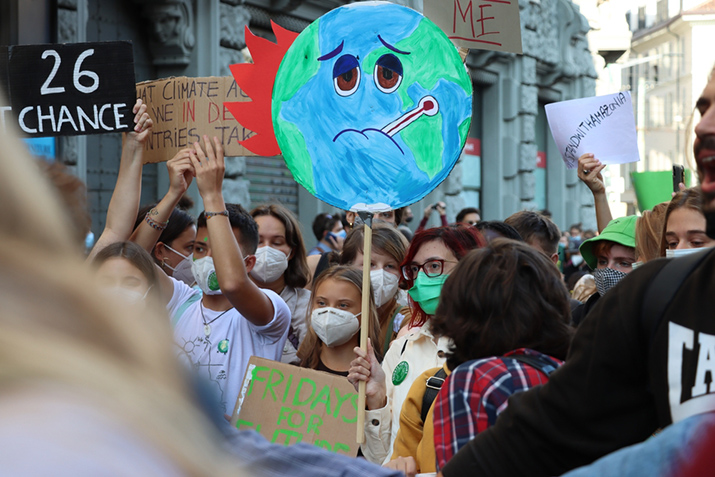New year, new consumer trends revealed

Happy New Year! We have turned the calendar page to January and what a better way to start the new year than to examine five key trends that are projected to impact how brands source ingredients and work to have a larger impact on people and the planet in 2022. The forecast, released by Fairtrade America, predicts a need for brands to ‘make good’ on their sustainability and human rights claims, and make it easier for shoppers to find ethically sourced goods.
More than half of respondents to Fairtrade’s biennial Fairtrade Consumer Insights report, conducted by GlobeScan, confirmed they have changed their purchasing choices within the past year to make a difference on economic, social, environmental or political issues, indicating people increasingly see their everyday shopping as an important way to make a difference.
Fairtrade America expects this consumer attitude will manifest in five key ways in 2022:
Consumers will continue to demand companies focus more on sustainability.
As climate change continues to worsen, consumers are looking to brands to provide sustainably sourced and produced products they can feel good about purchasing. Per the Insights report, more than a quarter of consumers say they always or usually base their purchases on sustainability, which is an increase of 11 points over the last 14 years and up 4 points from 2019.
Climate studies predict that by 2050 coffee, tea, cocoa, and cotton will be so severely affected that production in some areas will even disappear. While the world’s wealthiest 10% are responsible for 50% of global emissions, it is those disadvantaged by unfair trade systems who are enduring the extreme hardship caused by climate change. At this year’s COP26 summit in Glasgow, for example, more than 30,000 consumers the world over voiced their demand for businesses and governments to act on behalf of farmers facing the challenges of an unstable climate by signing Fairtrade’s “Be Fair With Your Climate Promise” petition.
Advocacy for human rights and fair wages will go global in scale.
In 2021, 73% of Fairtrade shoppers were willing to pay more for a product to ensure farmers and producers were paid a fair price; specifically, up to 35% more per pound for Fairtrade coffee and 30% more per bar for Fairtrade chocolate. About three quarters of consumers familiar with Fairtrade agree that when they buy certified products, they “feel part of a community standing up for fairness and justice.”
Large companies are taking note and re-examining their supply chains to ensure they are meeting these consumer demands. For instance, in 2020, Unilever announced a commitment to ensuring that workers who directly supply its goods and services across 190 countries will receive a living wage by 2030.
Shopping for everyday goods online will remain the new norm.
Covid-19 led more consumers to make purchases online — a trend that will continue into 2022. This digitalisation makes it easier for shoppers to compare products and learn whether a company’s sourcing and manufacturing practices align with their values. (Fairtrade – both International and America – is partnering with online retailers like Amazon to help shoppers find Fairtrade certified products through its Climate Pledge Friendly programme. Fairtrade America also launched a Product Finder with hundreds of certified goods sold in the US to help consumers easily identify and purchase Fairtrade certified products.)
Shoppers will seek out organisations and companies that promote gender equality.
Female producers in coffee, tea, cocoa, and other agricultural products worldwide are still fighting for equal rights and opportunities. A large proportion of the world’s food is farmed by women, yet there is a significant gender gap in agriculture leaving female farmers with less access than their male counterparts to resources like land, information, credit, training, and supplies. According to GlobeScan survey data, frequent Fairtrade shoppers care more than average about women’s causes.
More mission-focused brands + brand transparency.
There is a clear consumer desire to support brands that are not only taking care of their own teams and suppliers, but also contributing to making the world a better place. A study by Zeno Group found that consumers are up to six times more likely to buy from companies with a strong purpose. Additionally, 71% of consumers indicated that traceability is very important to them and that they are willing to pay a premium for brands that provide it, according to IBM Research Insights. Thus, companies have an opportunity to attract new customers and drive loyalty with existing shoppers by authentically developing a transparent supply chain and by celebrating how they work to benefit people and the planet.
This is of particular importance to Generation Z consumers, as the feature, “Recognising the Power and Potential of Generation Z” in T&CTJ’s January issue details.
Not quite pursuant to the sustainability trend, but more so serendipitously, T&CTJ, Firsd Tea and Crothers Consulting have collaborated to create what we believe is the ‘first of its kind’ tea survey to gauge perceptions of sustainability in the global tea industry among business leaders in the tea, coffee, cocoa, and wine sectors. The survey – which takes about 10 minutes to complete – launched in mid-December on our website and there is still time to respond.
For every completed response, a contribution will be donated to 1% for the Planet, an international organisation whose members contribute at least one percent of their annual sales to environmental causes. Their mission is to “build, support and activate an alliance of businesses financially committed to creating a healthy planet.”
Access the survey here. We hope you will take time to share your thoughts on tea sustainability. Thank you!
Best wishes for a happy, healthy and prosperous 2022! Stay safe and be well!
- Vanessa L Facenda, editor, Tea & Coffee Trade Journal.
Keep in touch via email: [email protected]Twitter: @TCTradeJournal or LinkedIn: Tea & Coffee Trade Journal.



